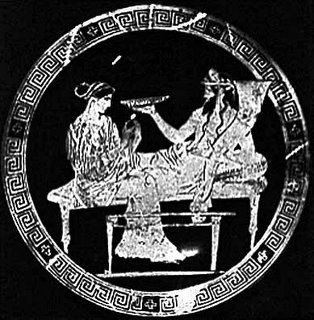Nonas March

Modern Date : March 7th
Nonas March
The Nones of March
This is one of the dies fasti on which legal actions are permitted. The rex sacrorum would appear on the steps of the Capitol on this day and announce to the people what days of the months would be holidays.
The Festival of Mars
This is the seventh day of the Festival of Mars. The daily spectacle of the priests of Mars leaping and dancing through the streets of Rome would continue this day.
This day is associated with Vediovis, an archaic deity to whom a temple was built by Romulus. Neither the temple, nor any adequate descriptions survive. Vediovis was a 'juvenile' version of Jove and a temple (the second of three) was dedicated to him on this day in 192 BC.
In 107 BCE, a purification of the city of Rome was conducted after an eagle-owl had entered the capitol buildingthis being an ill omen.
The emperor Antoninus died of an illness this day at Lorium in 161 AD and Marcus Aurelius became the new emperor.
The emperor Geta was born at Rome this day in 189 AD.
This was the traditional date on which Romulus established the inter duo lucos.
The month of March belongs to the warlike Mars, the deity who personifies the protection of the state and the productivity of the community. Mars was known to the Greeks as Ares, the god of war.
St. Thomas Aquinas
The feast of St. Thomas Aquinas (born 1226), the celebrated Angelic Doctor whose Summa Theologiae is the ultimate product of scholastic philosophy, and its effort to construct an intellectual foundation for the Roman Catholic faith.
Thomas Aquinas lived at a critical juncture of western culture when the arrival of the Aristotelian corpus in Latin translation reopened the question of the relation between faith and reason, calling into question the modus vivendi that had obtained for centuries. This crisis flared up just as universities were being founded.
Thomas, after early studies at Montecassino, moved on to the University of Naples, where he met members of the new Dominican Order. It was at Naples too that Thomas had his first extended contact with the new learning. When he joined the Dominican Order he went north to study with Albertus Magnus, author of a paraphrase of the Aristotelian corpus. Thomas completed his studies at the University of Paris, which had been formed out of the monastic schools on the Left Bank and the cathedral school at Notre Dame. In two stints as a regent master Thomas defended the mendicant orders and, of greater historical importance, countered both the Averroistic interpretations of Aristotle and the Franciscan tendency to reject Greek philosophy.
The result was a new modus vivendi between faith and philosophy which survived until the rise of the new physics. Thomas's theological writings became regulative of the Catholic Church and his close textual commentaries on Aristotle represent a cultural resource which is now receiving increased recognition.
Espousals of Our Lady
The date Mary was espoused to Joseph, as decreed by Paul II on 1537.

